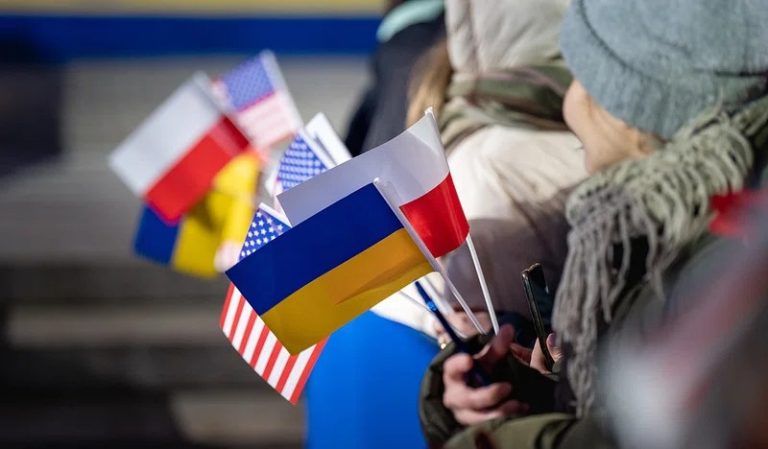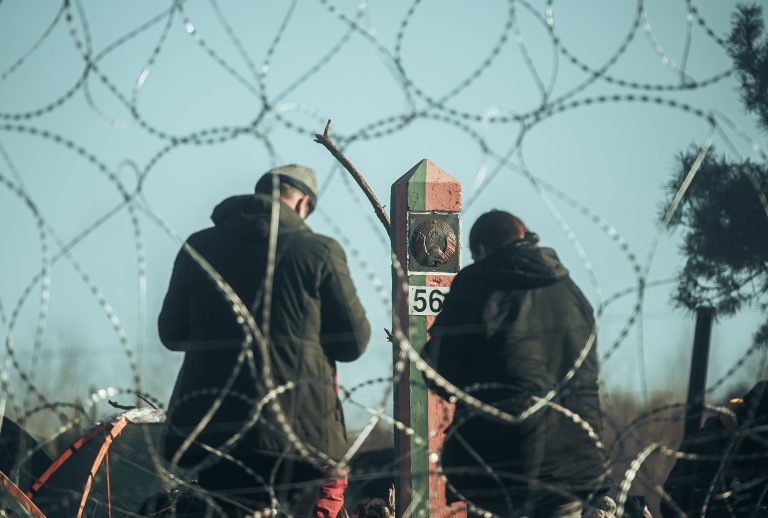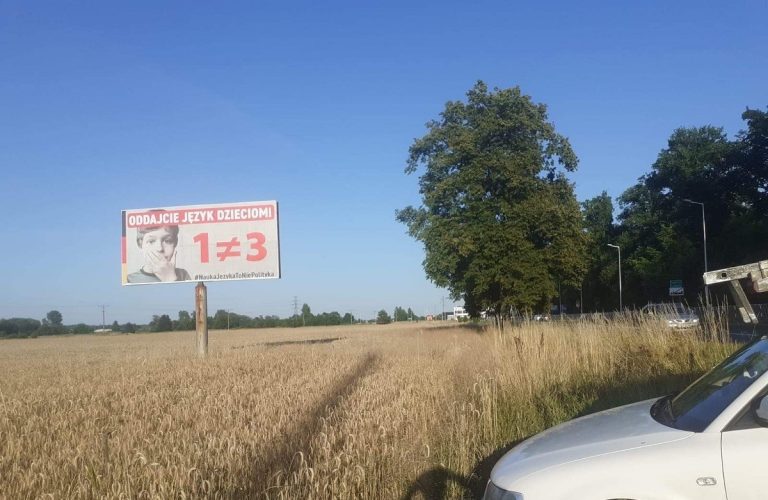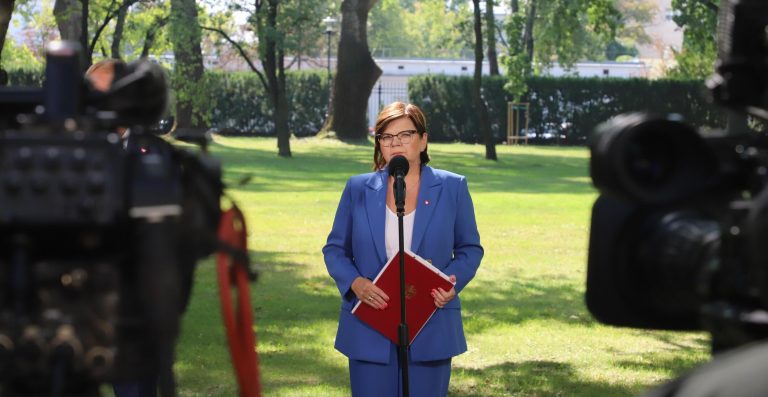Poland demands explanation after German police transport migrant family back over border
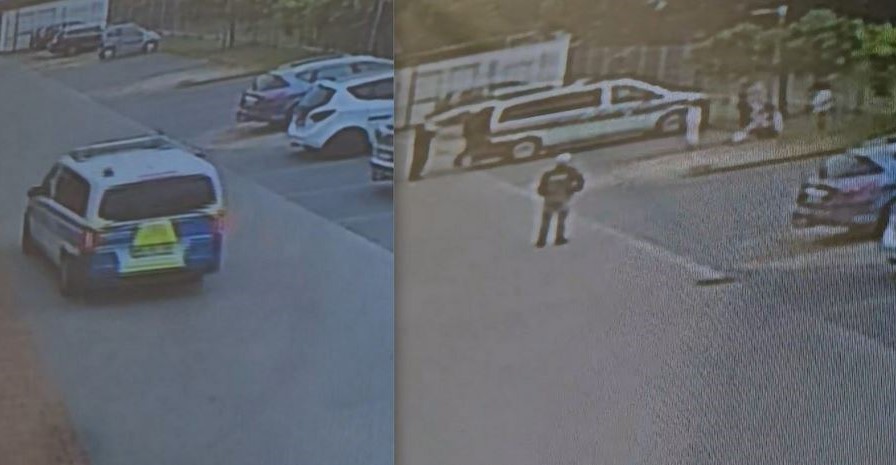
Poland has called on Germany to explain an incident in which German police transported a group of migrants to the Polish side of the border and left them there.
A senior Polish official called the situation “alarming”. But a spokesman for the German police says that officers acted after establishing that the people in question were Afghans with refugee status in Poland.
The incident took place last Friday, when a German police van drove through the border crossing point in Osinów Dolny, a Polish village of just over 200 inhabitants in the West Pomeranian province.
According to a witness who spoke to local media, two adults and three children left the vehicle. They allegedly tried to engage with passers-by and then went towards a large discount store.
🇵🇱 Osinów Dolny. W piątek 14 czerwca ok. 9.00 niemiecki radiowóz wjechał na obszar Polski i po polskiej stronie wysadził kilka osób poch. bliskowschodniego, prawdopodobnie rodzinę: dwoje dorosłych i trójkę dzieci. Potem osoby te zaczepiały przechodniów.https://t.co/JirKrQZVcu
— Adam Gwiazda (@delestoile) June 14, 2024
Polish police and border guard officers arrived at the scene but have not yet located the group, Tadeusz Gruchalla-Wensierski, a border guard spokesman, told the Polish Press Agency (PAP).
“The border guard has requested the German police to clarify the incident immediately. We are waiting for a response,” he added.
Meanwhile, deputy interior minister Czesław Mroczek told Polsat News that “this case [did not take place] under an EU procedure and is therefore very alarming to us”. He added that the incident “is being investigated and clarified with Germany”.
Subsequently, Gero von Vegesack, a spokesman for the German police, confirmed to Polish newspaper Fakt that the incident had taken place, saying that an Afghan family had tried to illegally enter Germany from Poland on 14 June.
“They had Polish refugee status certificates for the adults and Polish ID cards for the children. These people were taken to the police station for further investigation,” said von Vegesack. He added that, after their legal situation was confirmed, the family had to be sent back to Poland.
According to the spokesman, German officials informed the Polish border guard about the situation through the Polish-German Centre for Cooperation of Border, Police and Customs Services in Świecko.
“Since there was no reaction from the Polish side for several hours, the officers decided to take the family to the Polish-German border…in order to release them to Poland,” said von Vegesack.
Niemiecka policja wwiozła do Polski migrantów? Te informacje rzucają nowe światło https://t.co/AWSnorcyaU
— FAKT.PL (@Fakt_pl) June 17, 2024
Under the EU’s so-called Dublin Regulation, the country in which an asylum seeker first applies for asylum is responsible for processing that claim. The mechanism is regularly used to return asylum seekers from one member state to another.
On Monday afternoon, however, Poland’s border guard released a statement claiming that “the German police’s bringing and leaving of foreigners in Poland (Osinów Dolny) was in violation of the principles of cooperation between [the two countries’] services and the law regulating the transfer of persons”.
“The German services cannot make such decisions arbitrarily,” they added, before noting that the commander-in-chief of Poland’s border guard would meet with the head of Germany’s federal police on Tuesday.
‼️🔊Przywiezienie i pozostawienie przez niemiecką Policję cudzoziemców w Polsce (Osinów Dolny) odbyło się z naruszeniem zasad współpracy obu służb i prawa regulującego kwestie przekazywania osób. Służby niemieckie nie mogą arbitralnie podejmować takich decyzji. pic.twitter.com/O7wcEGd0dg
— Straż Graniczna (@Straz_Graniczna) June 17, 2024
In recent years Germany has also recorded growing numbers of migrants entering its territory from Poland after first illegally crossing the EU border from Belarus. That led the German authorities to last year introduce controls along the Polish border.
So far this year, 2,215 immigrants have been recorded making unauthorised entry to Germany after arriving via the so-called Belarusian route, reports German broadcaster Deutsche Welle.
In the same period in 2023, Germany detected around 6,000 such attempts, based on data presented by the Integration Media Service (Medie Dienst Integration).
Poland has taken a number of steps to prevent crossings at the Belarus border, including erecting an anti-migrant border fence and, last week, reintroducing an exclusion zone at the border designed, in part, to prevent people smugglers from entering the area.
Recent months have seen a surge in attempted crossings over Poland’s border with Belarus as well as violence by migrants towards Polish officers.
Security expert @MPiekarski24 explains why the situation has changed and how the government is addressing it https://t.co/tYNT5eL9SZ
— Notes from Poland 🇵🇱 (@notesfrompoland) June 12, 2024
Note: this article has been updated to include the Polish border guard’s statement on Monday afternoon.
Notes from Poland is run by a small editorial team and published by an independent, non-profit foundation that is funded through donations from our readers. We cannot do what we do without your support.
Main image credit: Combat Camera Poland/Flickr (under CC BY-NC-ND 2.0)

Agata Pyka is an assistant editor at Notes from Poland. She is a journalist and a political communication student at the University of Amsterdam. She specialises in Polish and European politics as well as investigative journalism and has previously written for Euractiv and The European Correspondent.

